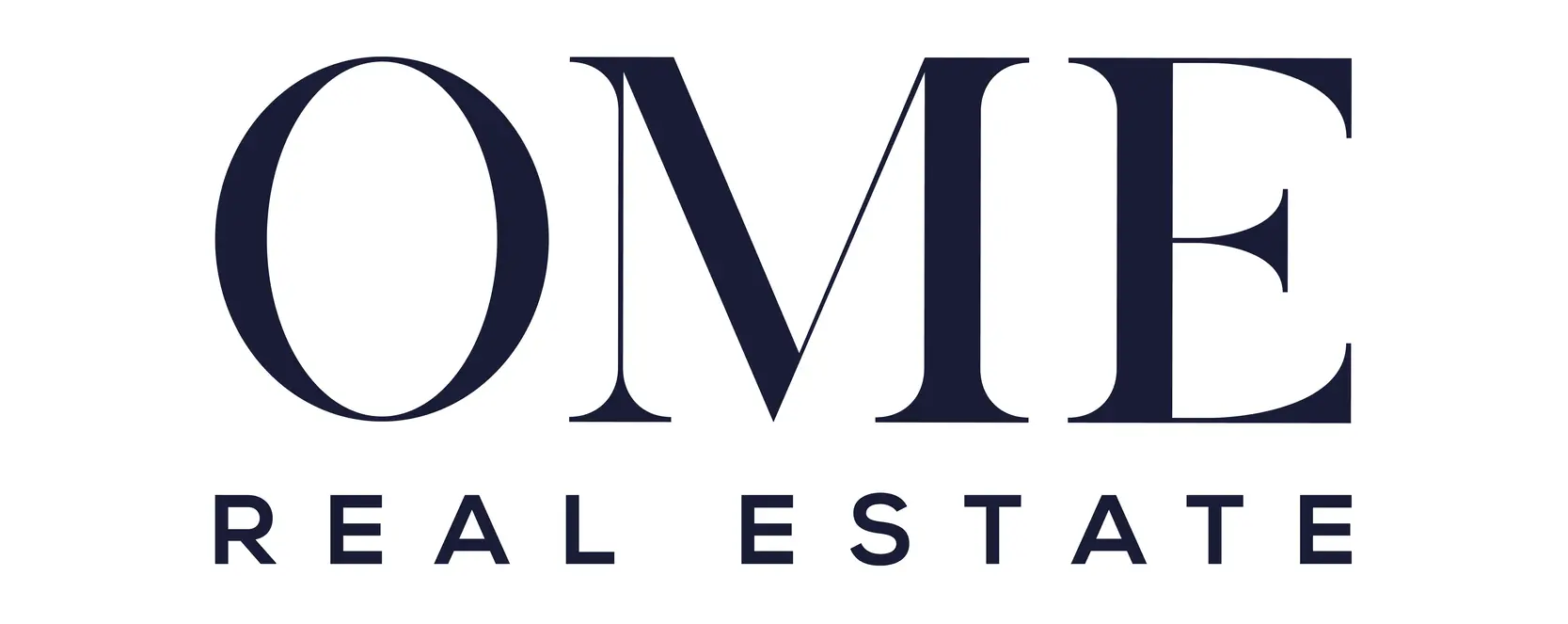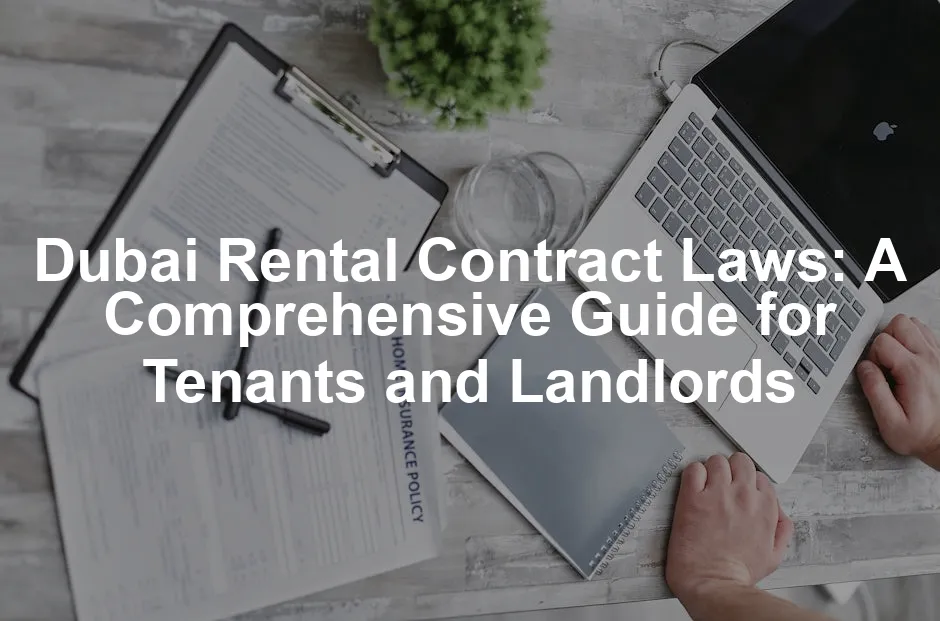Introduction
Are you planning to rent in Dubai? Understanding rental contract laws is crucial. These laws protect both tenants and landlords. They ensure everyone knows their rights and responsibilities. The Real Estate Regulatory Authority (RERA) plays a vital role in this. RERA regulates tenancy agreements, ensuring fairness in the rental market. This article aims to clarify Dubai rental contract laws for you. Whether you’re a tenant or a landlord, we’ve got you covered.
Summary and Overview
Dubai’s rental laws provide a framework for smooth landlord-tenant relationships. These laws outline key responsibilities for both parties. They also protect tenants from unfair practices. RERA oversees these regulations and ensures compliance. One essential aspect is the Ejari registration system. This system formalizes tenancy contracts, making them legally binding. It’s mandatory for both tenants and landlords to register their agreements.
Understanding your rights and responsibilities helps avoid misunderstandings. Tenants have the right to live in a safe and well-maintained property. They can also challenge unjust rent increases. Landlords, on the other hand, have the right to receive timely rent payments and maintain their properties. Not adhering to these laws can lead to serious consequences. Legal compliance is crucial for a harmonious rental experience.

Understanding Dubai’s Rental Laws
What is RERA?
RERA stands for the Real Estate Regulatory Authority. It was established to oversee Dubai’s real estate sector. RERA ensures that the rights of landlords and tenants are protected. They enforce laws that guide rental agreements and practices. Key laws include Law No. (26) of 2007 and Law No. (33) of 2008. These laws regulate the relationship between landlords and tenants, setting clear expectations for both parties.
RERA also established the Rental Disputes Settlement Centre (RDC). This center helps resolve any conflicts that arise during the rental period. By understanding RERA’s role and the laws it enforces, you can navigate Dubai’s rental market confidently.
If you’re considering renting or leasing a property in Dubai, knowing these laws is essential. For personalized assistance, feel free to reach out to Ome Real Estate. We can help you understand the nuances of the rental laws and find the best property for your needs.
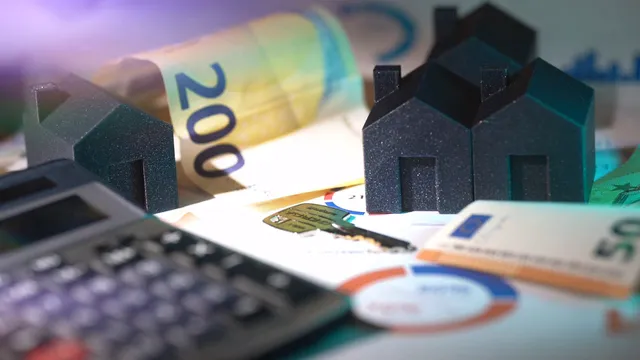
Key Tenancy Laws Governing Rental Contracts
Navigating the rental landscape in Dubai requires familiarity with the key laws governing tenancy contracts. The Real Estate Regulatory Authority (RERA) oversees these regulations. Here’s a breakdown of the primary laws you should know:
Law No. (26) of 2007
This law lays the foundation for landlord-tenant relationships. It outlines the rights and obligations of both parties. It also covers important aspects like contract duration and eviction processes.
Law No. (33) of 2008
This amendment enhances Law No. (26) by refining certain provisions. It emphasizes the need for written contracts and stipulates that all tenancy agreements must be registered with RERA through the Ejari system.
Decree No. (26) of 2013
This decree establishes the Rental Disputes Settlement Centre (RDC). The RDC provides a platform for resolving disputes between landlords and tenants. It ensures that conflicts are handled fairly and efficiently.
Decree No. (43) of 2013
This decree governs rent increases. It stipulates how and when landlords can increase rent. Landlords must provide tenants with a 90-day notice before any rent hike.

Understanding these laws is vital. They protect your rights, whether you’re renting a property or leasing it out. For landlords, these laws ensure timely rent payments and proper lease management. Tenants benefit from protections against unfair eviction and unapproved rent increases.
The Importance of the Ejari Registration System
Ejari is a crucial aspect of the rental process in Dubai. It is an online registration system that formalizes tenancy contracts. This registration is mandatory for all rental agreements.
By registering your contract through Ejari, you ensure that it is legally recognized. This protects both tenants and landlords in case of disputes. It also serves as proof of your rental agreement, which can be vital in legal situations.
Failing to register a rental contract can have serious consequences. Without Ejari registration, your tenancy agreement lacks legal validity. This means you may not be able to enforce your rights effectively. Additionally, it complicates any potential disputes that arise during the tenancy.
Overall, using the Ejari system streamlines the rental process. It fosters transparency and security for both parties involved in the rental agreement.

Rights and Responsibilities of Tenants and Landlords
Tenant Rights Under Dubai Law
As a tenant in Dubai, you have specific rights protected by law. Understanding these rights is essential for a smooth rental experience.
- Right to a Written Tenancy Contract: Every tenant has the right to a formal, written contract that outlines the terms of the lease.
- Right to Renew the Contract: Tenants can renew their leases unless the landlord has valid grounds for non-renewal.
- Protection Against Unfair Eviction: You cannot be evicted without just cause. Landlords must follow legal procedures to terminate a lease.
- Right to Lodge Complaints: If disputes arise, tenants can file complaints with the Rental Disputes Centre (RDC) for resolution.
These rights, supported by relevant legal articles, empower tenants to enjoy their housing without undue stress. It’s essential to know these protections to ensure a fair and respectful rental experience.
For personalized assistance with rental agreements in Dubai, consider reaching out to Ome Real Estate. Our team can provide you with valuable insights to navigate the rental landscape effectively.
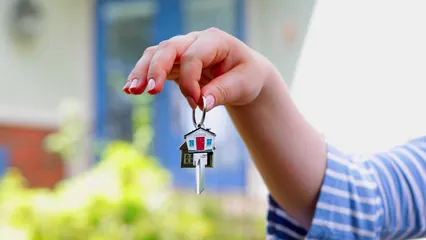
Landlord Responsibilities in Dubai
When you rent a property in Dubai, landlords have specific obligations. These responsibilities ensure tenants enjoy a safe and comfortable living environment.
One key obligation is providing a habitable property. This means the property must be structurally sound and equipped with essential amenities. The landlord must ensure working plumbing, heating, and electrical systems. If these elements fail, it’s the landlord’s duty to fix them promptly.
Another important responsibility is responding to tenant complaints. If tenants report issues, landlords should address these concerns quickly. Ignoring complaints can lead to further problems and dissatisfaction.
Landlords must also maintain the property throughout the lease. This includes regular inspections and necessary repairs. Keeping the property well-maintained not only protects the tenant’s rights but also preserves the landlord’s investment.
Legal articles, such as Article 15 of Law No. (26) of 2007, outline these responsibilities. Understanding these obligations helps both parties enjoy a smooth rental experience.
For assistance navigating these responsibilities, consider reaching out to Ome Real Estate. We can help you understand your rights and ensure you find a property that meets your needs.
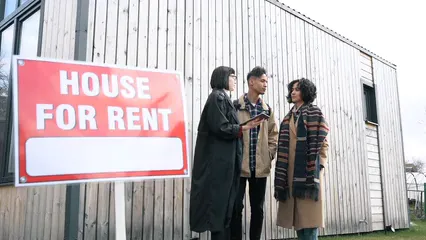
Rental Increase Regulations
Understanding Rent Increase Policies
Rent increases in Dubai are regulated to protect tenants. Under RERA guidelines, landlords must follow specific rules when raising rent.
Landlords can only increase rent once every two years. The increase is calculated based on the property’s current rent compared to average market rates. If the current rent is significantly below the market average, a rent increase may be permissible. However, this must comply with Decree No. (43) of 2013.
Factors influencing permissible rent increases include the property’s condition and the overall economic climate. Landlords must provide written notice at least 90 days before any increase. This gives tenants time to prepare for any changes in their budget.
Understanding these policies is crucial for tenants. It protects you from unexpected financial burdens. If you’re unsure about any rent increase, don’t hesitate to ask for clarification from your landlord or consult with experts.
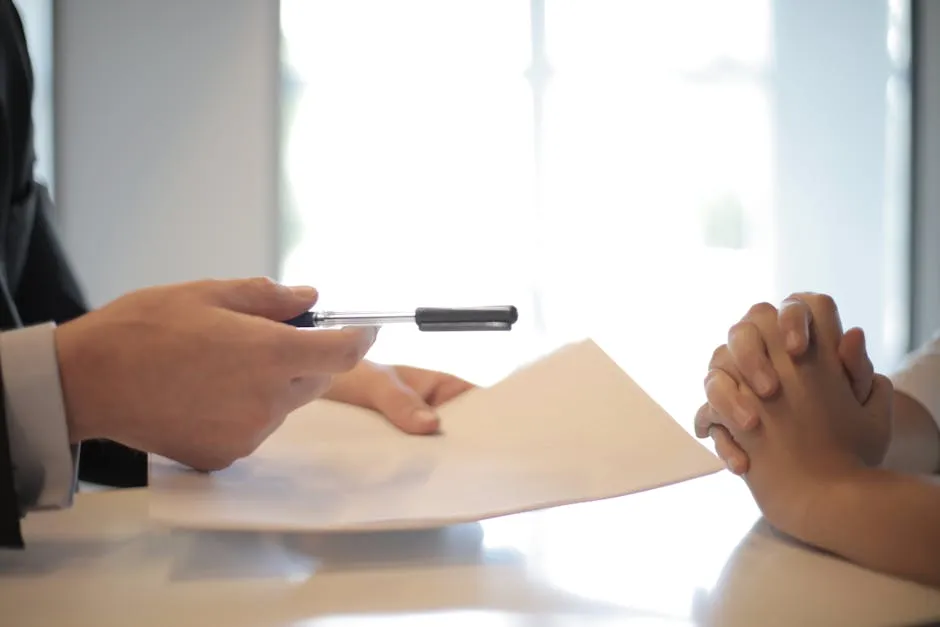
Eviction Procedures and Tenant Rights
Conditions for Eviction
Eviction is a serious matter governed by strict laws in Dubai. Landlords can only evict tenants for valid reasons specified in the tenancy laws.
Valid grounds for eviction include failure to pay rent after a 30-day notice. If a tenant subleases without permission, this can also lead to eviction. Illegal activities on the property or causing damage can result in immediate eviction as well.
The eviction process requires landlords to follow proper procedures. They must provide a written notice detailing the reasons for eviction. This notice typically must be given 12 months in advance if the landlord plans to sell or use the property for personal reasons.
Tenants have rights during this process. They can contest the eviction at the Rental Disputes Settlement Centre (RDC) if they believe it’s unjust. Knowing your rights can help protect you during this challenging situation.
For more personalized guidance on rental laws in Dubai, reach out to Ome Real Estate. Our team is here to support you through every step of the rental process.
Handling Disputes
Dispute Resolution Process
Disputes can arise between tenants and landlords. Knowing how to address these issues is essential. If you find yourself in a disagreement, start by discussing the matter directly with the other party. Open communication can often resolve misunderstandings before they escalate.
If discussions don’t yield results, it’s time to take formal steps. You can file a complaint with the Rental Disputes Settlement Centre (RDC). This center specializes in handling rental disputes in Dubai. They offer a structured process to ensure fairness for both parties.
Before approaching the RDC, gather all relevant documents. This includes your tenancy contract, any communication with your landlord, and proof of payments. Having these ready can strengthen your case.
Once you submit your complaint, the RDC will schedule a hearing. Both parties will have the chance to present their side. The RDC will then issue a ruling based on the evidence provided.
Remember, the RDC aims to resolve disputes amicably. They encourage mediation before moving to a formal verdict. This approach often leads to a quicker resolution and preserves relationships.
Should you feel dissatisfied with the RDC’s decision, there is an option to appeal. You can take your case to the Dubai Courts for further evaluation. However, this step can be more time-consuming and complex.
Understanding this process is essential for tenants and landlords alike. With the right knowledge, you can handle disputes effectively. For personalized advice on navigating rental agreements or disputes, consider reaching out to Ome Real Estate. We’re here to help you understand your rights and responsibilities.

Conclusion
Understanding rental contract laws in Dubai is crucial for a smooth rental experience. From knowing your rights to resolving disputes, being informed can prevent complications. The Rental Disputes Settlement Centre plays a vital role in mediating conflicts. If issues arise, don’t hesitate to seek legal advice for clarity and support.
Navigating rental laws can be complex, but you’re not alone. For assistance with your rental agreements, feel free to contact Ome Real Estate. We’re here to help you every step of the way.
For detailed information about the Dubai rental contract laws, you can reach out to us.
What are the key components of a tenancy contract in Dubai?
A tenancy contract must include property details, rental amount, duration, and the names of both parties. Registration through Ejari is mandatory for legal validation.
How can I resolve a dispute with my landlord in Dubai?
Start by discussing the issue with your landlord. If that fails, file a complaint with the Rental Disputes Settlement Centre (RDC) for mediation and resolution.
Can a landlord evict a tenant without a valid reason?
In Dubai, eviction cannot happen without a valid reason. Tenants are protected under the law, which requires landlords to provide just cause for eviction. Valid reasons include failure to pay rent after receiving a notice or engaging in illegal activities on the property. Landlords must also follow legal procedures for eviction. This usually involves giving a written notice that includes reasons for eviction. The notice period can vary, but it’s typically 12 months if the landlord intends to sell or use the property for personal purposes. Knowing these rights can help you navigate potential conflicts with your landlord. If you find yourself facing eviction, it’s important to consult with a real estate professional like Ome Real Estate. We can provide guidance and support throughout the process.
What happens if my tenancy contract is not registered with Ejari?
Failing to register your tenancy contract through Ejari can lead to serious implications. Without registration, your contract lacks legal validity. This means you may struggle to enforce your rights as a tenant. If disputes arise, having an unregistered contract could complicate matters significantly. You might not be able to present a legally recognized agreement. Additionally, landlords may find it challenging to take legal action if needed. To safeguard your rights, ensure your tenancy contract is registered through Ejari. This process formalizes your agreement and provides protection under Dubai’s rental laws. For assistance with Ejari registration, feel free to reach out to Ome Real Estate.
How often can rent be increased in Dubai?
Rent increases in Dubai are regulated to protect tenants. Under the laws set by RERA, landlords can increase rent only once every two years. The maximum allowable increase depends on the current rent compared to market rates. If the rent is significantly below the market average, a landlord may apply for an increase. However, they must provide a written notice at least 90 days before the increase takes effect. This ensures you have adequate time to prepare for any financial changes. Understanding these regulations can help you budget effectively. If you have questions about a potential rent increase, consult with a professional like Ome Real Estate. We can provide clarity and guidance on your rights.
What should I do if I receive an eviction notice?
Receiving an eviction notice can be stressful, but knowing how to respond is crucial. First, read the notice carefully. Ensure it outlines the reasons for eviction and the timeframe you have to vacate. If you believe the eviction is unjust, you can contest it. Gather all relevant documents, including your tenancy contract and any communication with your landlord. Then, consider filing a complaint with the Rental Disputes Settlement Centre (RDC). They can help mediate disputes and ensure your rights are protected. It’s also a good idea to seek legal advice. Professionals, like those at Ome Real Estate, can help you navigate this situation effectively. Remember, you don’t have to face eviction alone.
Please let us know what you think about our content by leaving a comment down below!
Thank you for reading till here 🙂
All images from Pexels
